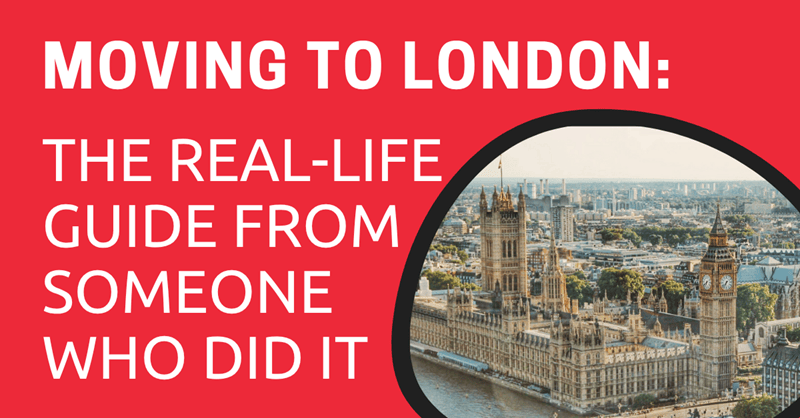
This article will take approximately 38 minutes to read. Don't have the time right now? No worries. Email the ad-free version of the article to yourself and read it later!
Thinking about moving to London? Here’s a real-life expat guide on jobs, cost of living, housing, visas, and what no one tells you about adjusting to life in the UK.
Picture this: One day you’re navigating Bangkok’s bustling streets, dodging tuk-tuks and savoring pad thai from street vendors. The next, you’re standing in Heathrow Airport, suitcase in hand, wondering why everyone seems so obsessed with queuing.
Welcome to my London story!
Moving from Thailand to London isn’t just changing countries, it’s jumping between worlds. Sure, you’ve seen the movies. You know about red double-deckers, afternoon tea, and that famous British politeness. But nobody warns you about the real stuff: why the Tube map looks like abstract art, how a simple “How are you?” doesn’t actually require an answer, or why every conversation somehow circles back to the weather.
London hits you with contradictions at every corner. Ancient pubs sit next to glass skyscrapers. People rush everywhere but still wait patiently in line. The city pulses with energy, yet afternoon tea happens at a gentle crawl. Some days, London feels like a warm hug, maybe it’s discovering a hidden garden square or having a stranger help you with directions. Other days, it’s more like a puzzle with missing pieces, like trying to understand why “quite good” actually means “not very good at all”.
This guide isn’t about the London you see on postcards. It’s about the real one: messy, magnificent, and occasionally mystifying. I’ll share what made me laugh, what made me cry, and what I desperately wish someone had told me before I stepped off that plane. Because trust me, London will surprise you, in the best possible way.
Disclaimer: This article may include links to products or services offered by ExpatDen's partners, which give us commissions when you click on them. Although this may influence how they appear in the text, we only recommend solutions that we would use in your situation. Read more in our Advertising Disclosure.
Contents
- Job Opportunities
- Cost of Living
- Language
- Visa
- Food
- Healthcare
- Where to Live in London
- Where to Look for Home
- Traveling in London
- Utilities
- Phone & Internet
- Opening a Bank Account
- Credit Cards and Debit Cards
- Taxes
- Education
- Airport
- Social and Cultural Life
- Safety Case Study
- Essential UK Emergency Numbers:
- Which Documents Should You Bring to London When Moving There?
- Is It Safe to Drink Tap Water in London?
- Is It Safe to Live in London
- Moving Timeline
- How You Can Move to London
Job Opportunities
Let me paint you a picture of my first week in London. PhD student by day, dreamer by night, and completely clueless about everything in between. In the first week, every morning, I’d put on my best confident face and walk the streets of London with one mission: find a Thai restaurant that would hire me.
Not because I was particularly passionate about restaurant work, but because I had a bill waiting for me and because it felt like the only place where my background might actually be an advantage rather than a barrier. Day after day, I knocked on doors. “Sorry, we’re not hiring.” “Please leave your phone number and we will call you when we need someone.” “Sorry, we need someone with experience.” The city that had seemed so welcoming in guidebooks suddenly felt like a fortress with locked gates.
Here’s what nobody tells you about job hunting in London as an international: everyone’s fighting their own battles, and nobody’s waiting to rescue you. It’s not that people are mean. They’re just busy surviving their own London adventure.
Here’s the reality of London life: working below your qualifications isn’t failure, it’s a survival strategy. London’s job market has plenty of opportunities for everyone, you don’t always need a university degree to survive here.
Warehouse work, hospitality, retail, construction, and delivery jobs are everywhere, often paying £10-13 per hour (in 2025). Many employers care more about your willingness to work than your CV. Want to drive for Uber? You just need a UK driving license. Fancy working in a pub? Personality beats qualifications. Construction sites are crying out for workers. No degree required, just strong hands and a good attitude.
Moreover, walk through any neighborhood and you will see the Pakistani engineer delivering your food after his work or the Indian IT guy folding clothes at Primark on weekends. Welcome to London, where many people have two jobs! It’s not because they can’t find the right job. It’s because London is expensive, really expensive. Rent eats half your salary. Transport costs a fortune. Even groceries make you cry. So, we get creative. We work our “proper” jobs, then rush to our second jobs.
It sounds crazy, but it actually works. You meet amazing people, learn new skills, and somehow pay the bills. Sure, it’s not the glamorous London life you see on social media. But it’s real life, and real life here means hustle. The good news? You’re definitely not alone.
Cost of Living
According to the Office for National Statistics, the average cost of living in London is is significantly higher than the UK average.
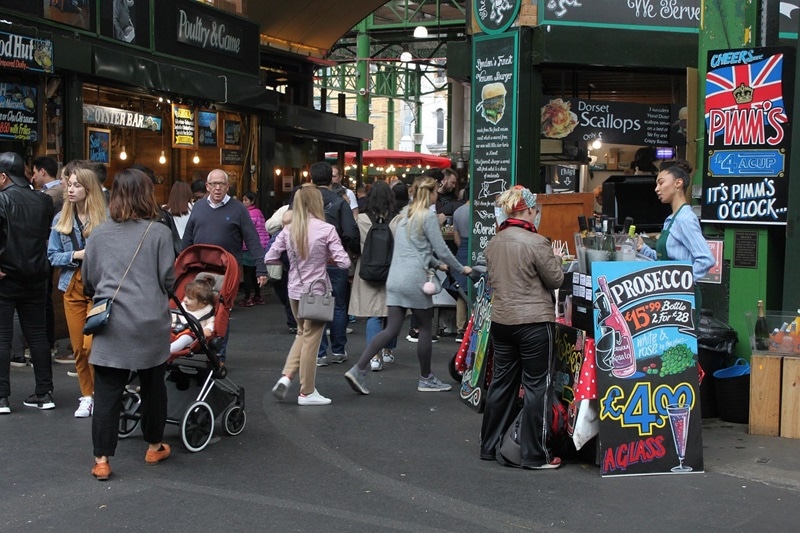
What It Really Costs! Let me give you the numbers that’ll make your wallet weep and then show you how to survive them.
The manager at my work pays £2,500 a month for a one-bedroom flat in West Kensington. Sounds fancy, right? It’s basically a glorified shoebox, but anyway, it’s private and in a decent area.
Can’t afford solo living? Join the house-share army. You’ll pay anywhere from £800 to £1,500 monthly, depending on whether you want a cupboard in Zone 4-6 or an actual room in Zone 1-3. Some houses cram six people into what should hold three, turning kitchens into battlegrounds and bathrooms into booking systems.
Here’s my secret weapon: I live 45 minutes outside London (Colchester) near my university. My boyfriend and I split £1,000 monthly for a proper one-bedroom that’s actually comfortable and spacious.
The same place in central London? Try £3,000. That train commute suddenly looks pretty smart. But rent’s just the beginning. Let me break down the absolute bare minimum you need to survive in London:
| Rent | £800 (cheapest room in outer zones) |
| Travel card | £150 (Zones 1-6 monthly) |
| Groceries | £250 (if you’re eating beans on toast half the week) |
| Utilities | £120 (if you share in a house share) |
| Council tax | £100 (cheapest bands, split between housemates) |
| Phone | £20 |
| Emergency fund | £100 (because London will always surprise you) |
| Grand total | £1,540 per month minimum |
Want to actually enjoy London instead of just surviving it? You’re looking at £2,200-2,500 monthly. Want to live well? £3,000+. London doesn’t care about your budget. It’ll drain your bank account faster than your imagination, but here’s the thing – if you can crack the code (like my Colchester setup), you might just fall in love with this expensive, exhausting, absolutely brilliant city.
Language
The Great British Language: What You Don’t Know in English Class
Welcome to the Land of “Proper” English. Yes, English is the main language in the UK, but wait. Here’s something that I need to warn you about before moving to London: the English you learned in school is just the beginning of your language adventure.
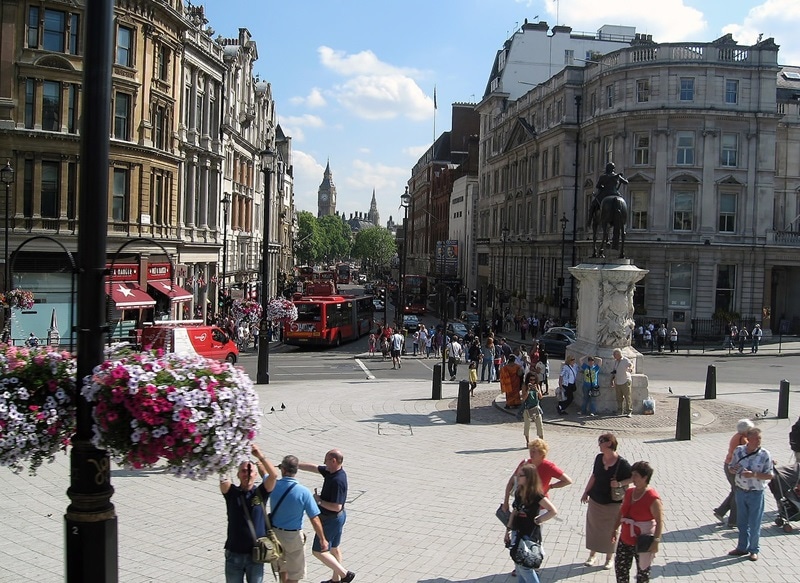
When I first arrived, I remember standing in a queue at Tesco, completely lost while the cashier chatted away in what sounded like a completely different language. But here’s the thing that blew my mind: within a few weeks, my ears started picking up the rhythm, and suddenly I realized I wasn’t just learning a version of English anymore, I was collecting them all.
London is like a living English museum where you’ll hear posh pronunciation from your university professor, thick Cockney from the market vendor, melodic Caribbean English from your neighbour, rapid-fire Indian English from your colleague, and everything in between. At first, it felt overwhelming, but then something magical happened. I started asking people to repeat things when I didn’t understand.
Instead of being embarrassed, I discovered that most Londoners actually love sharing their stories and explaining their expressions. Now, when I hear a beautiful Scottish accent on the Tube or catch the musical flow of African English at work, I feel like I’m experiencing this incredible symphony of human communication.
Tip: Don’t fight it. Embrace it. Every accent you learn to understand opens up a new community, a new friendship, a new way of seeing the world. London doesn’t just teach you English; it teaches you that language is alive, constantly evolving, and absolutely beautiful in all its forms.
Visa
When you are in London, walking through Borough Market on a Saturday morning, you will see an Italian vendor selling coffee, a Thai woman selling Thai curry, an Indian boy chatting with his flatmate from China, and you will see people from literally every corner of the world. This is life in London, where everyone has their own story about how they made it here.
The biggest wave right now is students like me who are crushing it on student visas. London’s universities are magnets for ambitious people worldwide. After you graduate, you get this amazing Graduate Visa that gives you two to three years to explore, network, and land your dream job without any pressure. I’ve watched people use this time to completely reinvent their careers, start businesses, or score positions at companies they never thought would notice them.
If you are lucky enough, you will find a “Skilled Worker Visa” and London companies are practically throwing these opportunities at talented people. The city is hungry for fresh minds, especially in tech, finance, and creative industries. For example, I am a PhD student on a student visa, and I plan to get the post-study work visa to land my dream job of being a lecturer at a university in London.
London has tons of different visa routes that might be perfect for your situation. Maybe you’re a healthcare hero ready to save lives in the NHS, a creative genius with big artistic dreams, or someone with family ties calling you home to London. The possibilities are endless, and honestly, you might discover a pathway you never even knew existed.
Check more information at the official UK government website, where you can see all the current visa options, updated rules, and even use their handy tool to figure out exactly which route fits your dreams. Trust me, spending an hour browsing through the possibilities might just change your entire future plan. Don’t let anyone tell you London is impossible to reach. There are more doors into this incredible city than you think, and one of them might have your name on it.
Food
Let’s be honest, when people think of British food, they usually picture “fish and chips” or maybe a questionable pie floating in gravy. Yes, “fish and chips”

It is technically the UK’s national dish, but here’s the beautiful secret about London: this city has foods from all around the world that will make you miss home just a little bit less! Don’t panic if you’re craving the flavours of home. London’s got your back (and your stomach). Missing Pad Thai? Head to Chinatown or explore the amazing spots along Edgware Road (Thai food is actually everywhere).
Desperate for authentic Indian food? Brick Lane is calling your name with some of the best curry houses outside of Mumbai. Craving dim sum? Gerrard Street and Soho will make you forget you ever left China. From Ethiopian injera in Camberwell to Turkish kebabs on Green Lanes, every neighbourhood seems to specialise in making your homesick heart happy.
Now, let’s talk about money because London’s restaurant prices can make your wallet weep tears of pure terror. A decent meal out can easily cost £20–50 per person, and that’s before you’ve even looked at drinks! But here’s the insider secret that savvy Londoners swear by: become best friends with your kitchen.
Hit up local markets like Borough Market or Brick Lane Market for fresh ingredients, discover the magic of Tesco meal deals, and master the art of batch cooking. Your bank account will thank you, and honestly, nothing beats the satisfaction of nailing a homemade Sunday roast while saving a fortune!
Healthcare
Let’s have an honest chat about healthcare in the UK. It’s going to be a big adjustment if you’re coming from a country like Thailand, India, Korea, or Turkey. First, the reality check: as a foreigner, you’ll be paying the Immigration Health Surcharge (IHS), which can cost almost £800 annually. Yes, you heard that right. You pay upfront for healthcare you will struggle to actually access!
Here’s where it gets interesting (I mean frustrating). If you’re used to popping into a clinic in Bangkok for a quick check-up or getting same-day appointments in Seoul, prepare for culture shock. The NHS operates on a “you’re not dying, so you’re fine” philosophy. Got a cough that’s been lingering for weeks? The receptionist will basically tell you to drink tea and wait it out. Want a routine health check? Good luck convincing anyone that prevention is better than cure!
The system works brilliantly for emergencies, if you’re genuinely sick or injured, they’ll patch you up without bankrupting you. But if you’re the type who likes regular health monitoring or quick consultations (like most people coming from Asian healthcare systems), you’ll find yourself missing those efficient, accessible clinics back home.
Your best bet? Consider private healthcare if you can afford it or learn to embrace the British art of “waiting it out with paracetamol.” On the bright side, prescriptions are capped at around £9.90, and emergency care is genuinely free. Just don’t expect the convenience and accessibility you might be used to.
The NHS marches to its own, very slow drum! My way? Don’t get sick. Even though I’ve broken the bank to pay for the IHS! I sleep enough, eat good healthy food, and go jogging to keep myself healthy. That’s the best way for my healthcare in this country!
Find out more: The Complete Guide to Health Insurance in the UK for Foreigners
Where to Live in London
Finding Your Zone (Literally!)
Before we dive into neighbourhoods, let’s crack the code on London’s zone system. Think of it as the city’s way of organising itself like onion layers! Zone 1 is the golden centre where Big Ben and Buckingham Palace live, while Zones 2–9 spread outward. The further out you go, the more space you get for your money, but you’ll spend a bit more time on the Tube getting to central London.
Here’s the beautiful thing about London. You can literally find your home away from home! Missing your community? Here’s where some major ethnic groups have formed strong communities:
- Indian communities:
- Southall (Zone 4)
- Hounslow (Zone 4–5)
- Harrow (Zone 5) – has the highest Indian population in London, just 30 minutes from central London
- Pakistani communities:
- Redbridge (Zone 4–5) – highest Pakistani concentration
- Newham (Zone 2–3)
- Waltham Forest (Zone 3–4)
- Bangladeshi communities:
- Tower Hamlets (Zone 2)
- Brick Lane area (Zone 2)
- Chinese communities:
- Spread throughout London, but most concentrated in Barnet (Zone 4–5)
- Thai communities:
- Clustered around areas with excellent transport links to central London, where many work in restaurants and hospitality
The beauty is that even from Zone 5, you’re usually just 45 minutes from the heart of London. Not bad for a city this size!
Now let’s talk money. because London rents will make you question your life choices! The average rent in London is now £2,121 per month. Want to live like royalty in Kensington and Chelsea (Zone 1-2)? Prepare to shell out £3,459 per month on average. But don’t panic. Bexley (Zone 6) offers the cheapest average rent at £1,520, though you’ll be traveling quite a bit to get anywhere exciting.
Room sharing is where the magic happens. You can find rooms from £735 in places like Kentish Town (Zone 2) to £1,700 near Green Park (Zone 1). Like me, I hunt on websites like “SpareRoom” and “Rightmove,” looking for those precious 4–5-person house shares to split the astronomical costs. The reality? Most rooms are basically mouse-sized boxes where you can touch both walls while lying in bed.
But hey, if you’ve got £3,000+ per month lying around, you can live like a proper human being with actual space to breathe! For the rest of us mere mortals, welcome to the wonderful world of strategic room-sharing and creative furniture arrangements. That’s when you discover the hidden creativity in you!
Where to Look for Home
Welcome to London’s rental battlefield, where speed is everything! You’ll basically be living on your phone, so let me introduce you to the big players in the home search. SpareRoom and Rightmove are the absolute giants everyone uses. Zoopla and Movebubble are solid backup options that sometimes have different listings. Then there’s Ideal Flatmate and Roomgo for when you want to find people you might actually enjoy living with instead of just the first person who can pay rent.
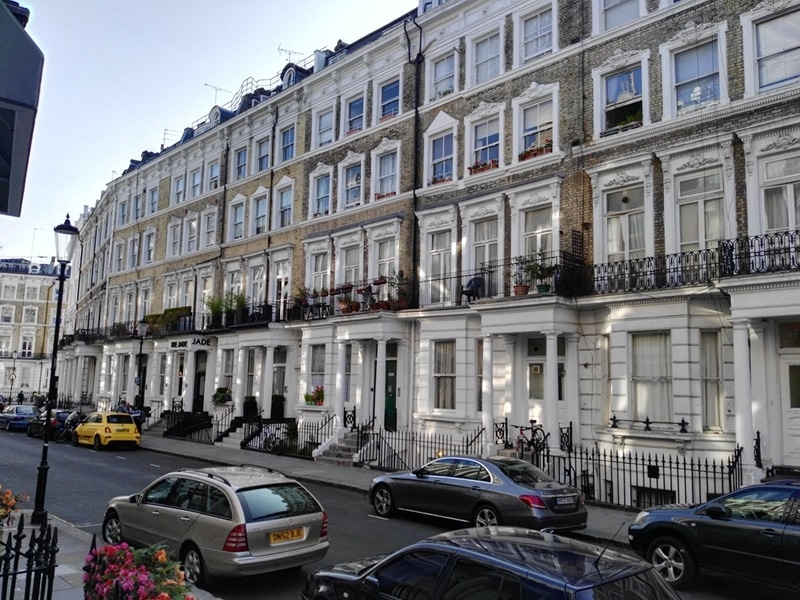
Most landlords want you to move in immediately. The thing about working in London is that you’ll need to find a place to live within about a month, not much longer than that. Plus, there’s this thing called a ‘Guarantor‘. These are local people whose annual income needs to be at least 36 times the monthly rent to qualify. But don’t worry if you don’t have one.
London always has alternatives. You can pay advance rent for a minimum of 6 months or even a full year upfront. Yes, I know it sounds crazy, but that’s what I’m doing right now. Also, the minimum contract is usually 6–12 months, and you need to pay a bond, actually 1–2 months of rent as a deposit.
Traveling in London
London’s transport system is like a complicated relationship, frustrating, but you can’t live without it. Here’s what you need to know about getting around this massive city without going broke or insane.
The Tube (Underground)
Your best friend and worst enemy. It’s fast, frequent, and connects everything, but it’s also expensive and turns into a human sardine can during rush hour. Get an Oyster card or use your bank card. Peak hours (7–9:30 AM, 5–7 PM) cost more, so time your trips if you can.
Buses
Cheaper than the Tube and run 24/7 on some routes. Perfect for short distances or when you want to actually see London instead of staring at tunnel walls. Just don’t expect them to be on time, London traffic is brutal.
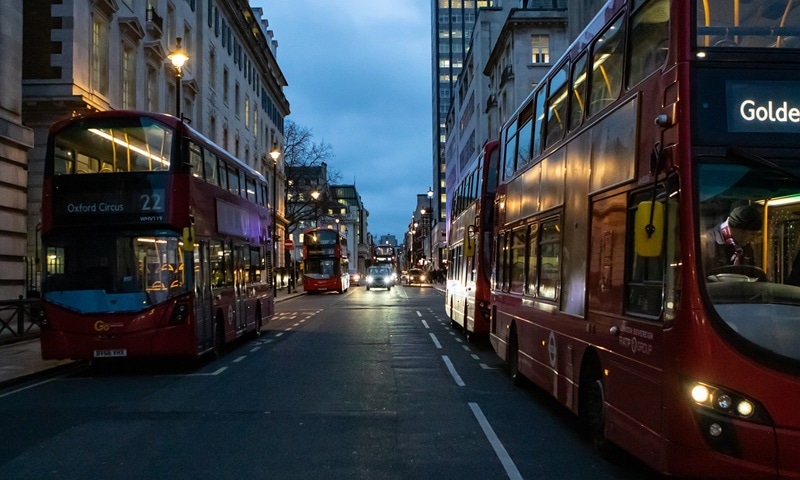
Trains (Out of London)
This is where I learned an expensive lesson. When you’re traveling outside London, there are things called Railcards that give you 1/3 off train tickets. Sounds great, right? It’s basically a discount card (£30/year) that saves you money on train fares if you’re a student, young person, or meet other criteria.
My costly mistake: I bought a Railcard and then purchased a discounted student ticket online. What I didn’t realize is that you need to link your Railcard to your account AND carry the physical card with you. Train staff check tickets randomly, and when they asked for my Railcard, I just stared at them blankly.
Result? An £80 penalty fare that made my “cheap” journey cost more than a full-price ticket. The guard was not impressed with my “I’m new here” excuse. If you buy discounted tickets with a Railcard, always carry the actual card or e-card. Staff will check, and they don’t care about your sob story.
Utilities
Most rental agreements won’t include utilities like gas, electricity, water, and council tax, so you’ll need to manage these separately.
- Gas & Electricity – Your average annual energy bill will be around £1,720 (about £143 per month). Energy suppliers average your bills throughout the year so you’re not suddenly paying double in winter, how thoughtful of them!
- Council Tax – Typically around £163 per month. This funds local services like waste collection and police. You’re legally obligated to register with your local council within 21 days of moving in. (On a student visa, you don’t need to pay council tax, but you must inform them.)
- Water – Around £33 per month, either based on metered usage or a flat rate.
- TV License – Around £12 per month. If you have a TV or watch online, you must pay this or face heavy fines.
- Internet – Expect £30–60 monthly for broadband and phone bundles.
Phone & Internet
The UK has four main mobile networks: EE, O2, Vodafone, and Three, though Three’s merger with Vodafone has been approved and will complete in the first half of 2025.
- Mobile Plans – You can get 80GB of monthly data for £10/month with some providers, while SIM-only deals range from £6 to £45 per month depending on what you need. O2 is the only major network still offering free EU roaming up to 25GB.
- Broadband – Vodafone offers speeds up to 2.2 Gbps, but expect to pay around £30–60 monthly for decent internet. Watch out, most providers increase prices annually in March or April! If you’re not sure how long you’ll stay, consider no-contract options starting from £28 monthly.
Pro tips: Look into “piggyback” providers (MVNOs) like Giffgaff or ID Mobile for cheaper deals. You can use your phone as a hotspot temporarily, and some providers will cover up to £100 in early termination fees when switching. Bundle deals can save money, but read the fine print, those “promotional prices” have a sneaky habit of doubling after 12 months! Don’t expect too much from the signal quality in the UK. You might be surprised to find that internet signal in your home country was far better! British infrastructure can be patchy, especially in older buildings or rural areas, so prepare for the occasional digital frustration.
Opening a Bank Account
Welcome to the Land of Endless Paperwork!
Most students prefer opening an account with either HSBC UK or Lloyds Bank, which are the go-to banks with accessible service and locations on the high street. I had my first bank account with HSBC UK, and eventually with Lloyds Bank as well.
Prepare yourself for a reality check that’ll make you question everything about efficiency! Many standard bank accounts in the UK can be opened within 1–2 days, but let’s talk about what happens after that “opening”, because that’s where the real adventure begins.
Here’s my experience (and probably yours too): I waited for weeks to get my debit card delivered by Royal Mail. But wait, there’s more! In a stroke of British genius, they send your PIN separately, another whole week of waiting for a mysterious envelope containing four precious numbers. Meanwhile, in Thailand, I could walk into any bank, open an account, and walk out with a working ATM card in 10 minutes flat!
- What You’ll Need: You’ll usually need just two documents: one to prove your identity and one to prove your address. For foreigners, your best bet is using your passport for ID, plus a utility bill or tenancy agreement for address proof.
- The Process: Provided you have all the information, successfully applying shouldn’t take long (around two weeks), though that’s just for approval! Add another 1–2 weeks for your card and PIN to arrive separately through the postal system.
Pro Tips: Digital banks like Monzo and Revolut offer services to non-residents and don’t always need traditional address documentation. Some UK banks like Barclays and HSBC offer international accounts you can open before arriving. The British banking system operates like it’s still 1995, embrace the vintage charm and the patience of waiting for post!
Credit Cards and Debit Cards
Starting From Financial Zero! Here’s the harsh reality: your existing credit score doesn’t travel with you across borders, so you’ll need to start fresh. Credit ratings are not transferable, even between countries like the UK and US.
- Debit Cards: You’ll get one automatically with your bank account, easy peasy! Use it for daily purchases and ATM withdrawals.
- Credit Cards: This is where it gets tricky. There are credit cards designed specifically for those with poor credit scores and no credit history, known as credit builder credit cards. However, they tend to have high interest rates and low credit limits. These cards are usually not easily accessible, as a thorough background check is performed before you are granted a credit card.
Building Credit Tips: Register on the electoral roll, pay bills on time by direct debit, and pay off credit card balances in full monthly. A UK mobile phone contract is a good first step to building credit. Start building immediately. Also, HSBC UK now allows newcomers to leverage their international credit history when applying for a credit card.
Taxes
Welcome to the British Money Collection Game! Don’t panic, the UK tax system is actually quite straightforward once you understand the basics!
- Everyone Gets a Freebie: Most people can earn £12,570 per year before paying any income tax, this is called your “personal allowance.” Anything above this gets taxed.
- Tax Rates for Everyone: Income tax rates are 20% (basic rate), 40% (higher rate), and 45% (additional rate). These are marginal tax bands, meaning you pay different rates on different parts of your income.
- Students (Part-time Jobs): Good news! If your average monthly earnings exceed £1,048, you’ll pay income tax, and if weekly earnings surpass £242, National Insurance contributions kick in. Your employer will automatically deduct taxes through PAYE (Pay As You Earn), no complicated paperwork!
- Full-time Workers: Whether you’re British or foreign, if you work in the UK, you pay the same taxes through PAYE. Your employer sorts everything out automatically.
You can see the UK tax rates at the HMRC website.
Find out more: A Complete Tax Guide for US Expats Living in the UK
Education
Here’s the fantastic news: the UK provides free state education to all children, regardless of immigration status, ensuring that migrant children can integrate and thrive in the UK education system. Children of compulsory school age, broadly those aged 5 to 16, living in England are required by law to receive a suitable full-time education, and if they are resident in the UK, they will normally have the right to attend state-funded schools.

As long as they have the right to live in the UK, any child who is resident there can attend the local state school, completely free! This means no school fees, and your children get to experience proper British culture while making local friends.
For international students, the situation has become trickier. The UK government’s decision to revamp its dependent visa policies in 2024–2025 reflects its commitment to addressing rising net migration figures, meaning many international students can no longer bring their families on dependent visas.
However, eligible international students with dependents may be interested in having their children attend an independent school, though these come with hefty fees.
Airport
London has multiple airports serving the city. Heathrow is the main international hub with four terminals (2, 3, 4, and 5), handling most long-haul flights from around the world. While it’s busy and well-connected, don’t expect it to be massive like some Asian airports, it’s actually quite compact compared to places like Bangkok or Dubai! You can reach central London via the Tube (Piccadilly Line) or the faster Heathrow Express train.
Gatwick sits about 30 miles south and is popular with both major airlines and budget carriers. The Gatwick Express gets you to Victoria Station in just 30 minutes, very convenient. For budget flights around Europe, Stansted (northeast) and Luton (north) are your go-to airports, mainly serving Ryanair, easyJet, and other low-cost airlines. They’re further out, so expect longer and more expensive journeys to central London.
London City Airport is tiny but super close to the city center (just 6 miles east). It mainly handles short European flights and business routes due to its small runway.
When booking flights to “London,” always check which airport! The cheaper the flight, the further from London you’ll likely land. Budget airlines love using the outer airports, so factor in the extra time and transport costs to reach the city center. Heathrow and Gatwick offer the smoothest connections, while budget airports might save on airfare but cost you in convenience.
Social and Cultural Life
Social and Cultural Life in London: After-Work Adventures and Weekend Magic!
Forget what you think you know about British social life, Londoners know how to have fun! After work, the city transforms as pubs fill up with colleagues grabbing pints and sharing office gossip. “After-work drinks” is practically a religion here, and Thursday nights are almost as lively as weekends. Many locals hit the gym, join evening classes (pottery, languages, cooking), or catch late-night comedy shows at tiny venues across the city.
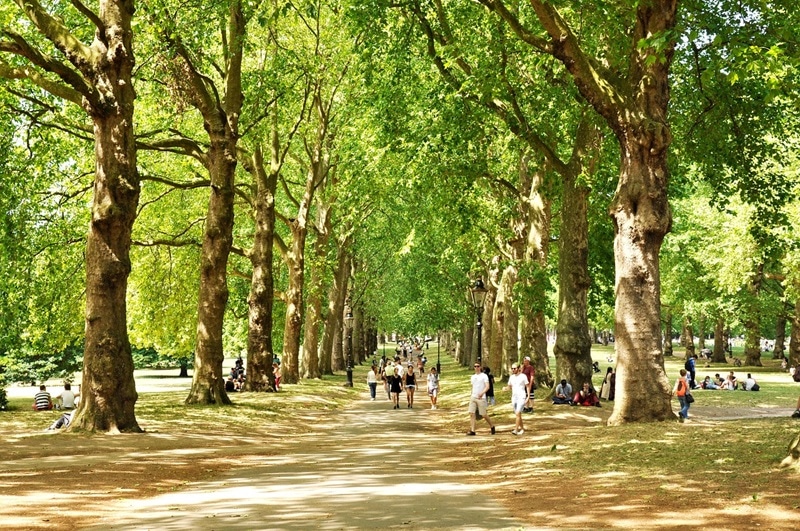
Weekends are when London truly comes alive! Saturday mornings mean farmers markets (Borough, Broadway, Camden), followed by long walks through Hyde Park, Regent’s Park, or Hampstead Heath, where people picnic, play football, or just read books under trees. Sunday pub lunches with friends are sacred, think hearty roasts, good beer, and hours of chatting.
The festival scene is incredible year-round. Winter Wonderland in Hyde Park (November–January) turns the city into a magical Christmas market with ice skating, German beer, and fairground rides. Summer brings outdoor cinema in parks, street food festivals, and the massive Notting Hill Carnival. Londoners are obsessed with beer gardens, outdoor concerts, and any excuse to be outside when the weather’s decent.
The real magic? Cultural events are everywhere and often free, evening concerts in churches, late-night museum openings, pop-up art galleries in old warehouses. People here genuinely embrace the “work hard, play hard” mentality, making friends through shared interests rather than just proximity. It’s a city that rewards curiosity, and rewards it well!
Safety Case Study
Here’s something that happened to me in the UK that most people never think about until it’s too late. I’m walking through town at night with my boyfriend (who’s Indian) when suddenly, out of nowhere, seven teenagers, aged maybe 10 to 15, surround us like a pack of wolves. The atmosphere shifts instantly.
“Go back to your country!” they shout, and before we can react, food comes flying straight into my boyfriend’s face. My heart is pounding. He’s about to lunge forward, but I grab his arm, in the UK, if you throw the first punch, you’re automatically in the wrong, no matter what they did to provoke you.
Panic mode kicks in. I’m fumbling for my phone, my boyfriend’s doing the same, but here’s the silliest part: neither of us knows the emergency number! This isn’t the time to Google it (plus the signal in the UK is so bad). In desperation, we dial what we think might be correct but somehow end up connected to the US emergency services instead! The American operator doesn’t hang up. They promise to contact UK police for us.
Fifteen minutes later, the British police call us back. That night taught me something crucial: you absolutely MUST memorize these numbers because when adrenaline hits, your brain stops working clearly.
Essential UK Emergency Numbers:
- 999 – Police, Fire, Ambulance (true emergencies)
- 101 – Non-emergency police
- 111 – NHS health advice (non-emergency)
Which Documents Should You Bring to London When Moving There?
Here’s the thing about moving to the UK – you’re going to need paperwork. Lots of it. While everyone’s situation is different (and I can’t tell you exactly what you’ll need), there are some essential documents that pop up again and again in expat life. For me, if you gathered documents for your visa application, bring everything you submitted – and then some.
Think of it as your “just in case” insurance policy. You’d be amazed how often that random certificate you thought you’d never need again suddenly becomes crucial for opening a bank account or registering with a doctor.
Here’s What Filled My Document Folder
Bring these important documents with you:
- Passport (obviously!)
- Birth certificate
- Marriage certificate (if applicable)
- University degrees and transcripts
- Professional certifications
- Employment references
- Bank statements from the last 6 months
- Medical records and prescriptions
- International driving license
- Insurance policies
- Passport-size photos (for visa or ID applications)
Pro tip: Make copies or PDF scans of everything. Keep originals and backups in separate places. You never know when you’ll need them, and replacing them from abroad is a nightmare.
But wait, there’s more! (I know, I know – the bureaucracy never ends.) Once you’ve touched down in the UK, you’ll need to tackle two crucial bits of admin that’ll become your new best friends.
First Up
Your National Insurance (NI) number. Think of this as your official UK identity number that follows you everywhere. The government uses it to keep tabs on your tax contributions and National Insurance payments. Basically, it’s how they know you exist in the system.
Whether you’re planning to work part-time in a cozy café or land that dream full-time gig, every employer will ask for this magic number. No NI number? No job. It’s that simple.
Next on Your Admin Adventure
The “UK Share Code.” This is your golden ticket as a non-British resident, proving you have the legal right to work and rent in the UK. Landlords want to see it, employers need it, and you’ll want to keep it handy because trust me – you’ll be asked for it more often than you’d expect. Get these sorted as soon as possible after arriving. Future you will thank present you for not procrastinating on the paperwork!
Is It Safe to Drink Tap Water in London?
When I first arrived, I noticed something interesting – loads of people were happily guzzling tap water, but most of them had filters to clean it first. But then 2025 happened. An article in an independent newspaper urged citizens to boil their water because of some uninvited “E. coli” guests in the supply. That was when I questioned if I could still drink tap water, but when it comes to my health, I’d rather be safe than sorry. I started buying water to drink.
Wait, there’s one more thing that nobody warned me about until I had lived here for two years already – we should also put a filter on the shower as well! (I’m not joking.) I don’t know if it actually helps, but I’m still doing it. It’s because after a year in the UK, I started noticing my hair wasn’t quite as… abundant as before, and many of my friends experienced the same. I’m not sure if it was because of stress about my studies (probably), but I’m still going to blame everything on the water.
Is It Safe to Live in London
Let’s be honest: London isn’t some crime-free paradise, but it’s not the knife-crime nightmare either. London isn’t as safe as it used to be.
I learned this the hard way when some charming individual tried to snatch my phone from my hand while I was literally just sitting on the Tube. Luckily, I gripped it tight, so they didn’t succeed. There’s another delightful experience: random strangers following me asking, “ARE YOU THAI?” When I said “YES” he asked, “HOW MUCH?” – because apparently, sometimes being Asian makes you a walking target for creeps. My tip: when there are people around, I’ll fire back with some choice words to show I’m nobody’s plaything. But flying solo at night is time to walk fast, hear nothing, see nothing.
The Brutal Truth: You need to be switched on 24/7. Don’t flash expensive stuff, keep your phone in inside pockets, and trust your gut when someone gives you weird vibes. Download offline maps so you’re not standing around looking lost with your phone out like a tourist. But here’s the thing: millions of us live here and survive just fine. Stay smart, stay alert, and don’t let paranoia ruin the experience. London’s got enough to stress about without adding unnecessary fear to the mix.
Moving Timeline
Your Moving Timeline to London: My Real Experience
Here’s what actually worked for me: I gave myself a full year to prepare – sounds crazy, but trust me on this.
- 12 months before: Spent 3 months studying for IELTS (yes, it’s that hard), took the test in month 4, then waited for the results. Only then could I apply for my student visa. (If you don’t need the IELTS test, skip this point).
- 8–6 months before: Applied for the visa. I waited 6–8 weeks for the result. This part is pure torture – just accept that you’ll check your email 47 times a day.
- 4–3 months before: I bought the plane ticket. Around 3 months before is the perfect time to get the best price. Also, during this time, I slowly bought the stuff I wanted to take to the UK, checking what was important to bring.
- 2 months before: Started browsing rental apps online but didn’t book anything yet. London landlords want tenants immediately – you literally cannot secure a place more than a month in advance.
- 1 month before: Booked a temporary accommodation like Airbnb for a full month. Expensive? Yes. Necessary? Absolutely. I just didn’t trust the photos and needed to view the real room and the surrounding area myself.
- A week before: The emotional chaos begins. Triple-check your passport, visa, and all-important documents. Pack your life into suitcases. Say tearful goodbyes to family and friends. Take a deep breath – you’re actually doing this.
- 1–3 weeks in London: House hunting like it’s my full-time job. Viewed places daily because photos lie.
- London moves fast: Landlords expect you to hand over deposits within hours. Don’t stress about booking before you arrive – just have your deposit ready and be prepared to move quickly.
- Bottom line: Start your visa process at least 6 months in advance, sort out banking 2 months before, and budget for temporary accommodation. London waits for no one!
How You Can Move to London
So, there you have it, the unfiltered truth about moving to London. I’ve shared the financial reality (it’s expensive), the safety concerns (stay alert), the timeline chaos (start early), and all the messy bits in between that most guides conveniently skip.
Here’s what I want you to do next: Stop overthinking and start planning. London isn’t going to get cheaper while you’re sitting there researching for another six months. If you’re serious about this move, pick a target date and work backwards.
Your Homework: Check your savings account – do you have at least £5,000 saved? If not, start there. Research your visa options on gov.uk. Join Facebook groups like “London Rental Rooms” to investigate. Start following London-based content creators to get a feel for daily life.
Most importantly: Accept that you’ll make mistakes. London will test you, drain your bank account, and occasionally make you question your life choices. But if you can handle the chaos, there’s no city quite like it. Ready to take the plunge? Your London adventure starts with that first visa application. Stop reading guides and start doing.







